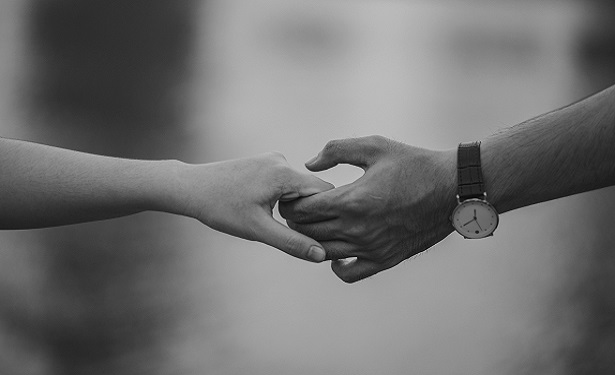Let’s talk about: Loss, Grief & Bereavement...
In fact, it’s something we all have in common. But our language for grief, and capacity to talk about it is, well, less than great. And that’s not good enough.
From The Calm Zone
The problem is that grief is uncomfortable, in much the same way that mental health was (and often still is ) uncomfortable to talk about. But we don’t want to shy away from those uncomfortable conversations – because the consequences of doing so can be devastating.
Thousands of people seek support from The Calm Zone's helpline, and webchat, community and online resources, for a wide range of difficult issues and experiences. And grief is one of those.
Grief is a term for an emotion that can rear its head over a whole host of things. Although we regularly talk about grief in relation to death, there’s grief relating to other kinds of loss – loss of an old way of life, loss of a job, item, feeling or partner.
Right now, we’re in the midst of a global pandemic, and with it, people are experiencing emotions they haven’t felt before and find difficult to articulate. Across the UK and across the world, we’re having to face things we could never have imagined just months ago – loss of our routines, loss of physical connection with friends and family, loss of jobs or purpose during furlough.

Not being able to talk about the things we’re finding difficult in our lives makes them harder to deal with. Which is why we need to develop a vocabulary for talking about the loss – so that when we inevitably lose those things that are dearest to us, we and those around us, are equipped to give the support we need.
That means we need to talk to people who have lost their loved ones, lost their jobs, lost partners or children in break ups or break downs. We need to be honest and realistic about what helps, what we don’t know, and begin to unpick the taboo around loss in our society.
This taboo is no more apparent than in cases of death by suicide – where both loss and suicide are shrouded in centuries of stigma. It’s why Calm began the Lost Hours Walk as a place for those bereaved or affected by suicide to talk openly about their loss, express themselves and their emotions without fear, and know they are not alone.
Connecting over grief is rarely done outside our private circles, but it can be a cathartic and comforting experience – one we need to find more ways to facilitate in everyday life.
Recent explorations into grief in the media – like Afterlife, Fleabag, Griefcast – have been popular because they articulate a feeling common to everyone on earth, in a relatable, and even funny, way. They recognise the complexities of grief, and the multitudes of emotions that come paired with it. And they stare them in the face. It’s representations like this that we need to encourage.
As a society, we are used to seeing one type of grief over and over again. We’re familiar with images of distraught parents discovering the death of loved ones on soap opera screens, but less familiar with the long term impacts and fluctuations in grief – the highs and the lows, the strength it takes to carry on after a loss, the ways in which grief can take over so many aspects of our lives, or the loneliness or isolation it can cause.
Writer Poorna Bell recently shared her own experiences of grief during lockdown. “The thing no one tells you about grief is that it is a uniquely vast experience and isn’t always sadness and the tearing out of your soul. That within it is laughter and remembrance, and that’s as important too.”
Her tweet resonated, with responses sharing personal stories and experiences and touching on the multitudes of ways that grief can show itself. Grief is not all sadness, there’s happy memories, as well as anger, guilt, and countless other feelings. Grief isn’t just one emotion. It is all of them.
Many of us may be familiar with the seven stages of grief, but that conversation needs an update for 2020. While it might be useful to see grief as a journey, it can also give the impression that grief is something we get through or even over- which we know isn’t true. In recent times the idea of grief as a ball in a box has gained popularity – even becoming viral on the internet.
And while people may disagree with this analogy, it’s exactly this kind of conversation that we need to be having more of – discussing openly our experiences of loss and the many ways it can make us feel.
Why? Because not doing so can have devastating consequences. Mental health does not exist in a vacuum, it is impacted by all of the everyday things in our lives. And when we don’t address the stuff that we’re struggling with? Well, frankly, we end up with a society in which 125 people per week take their own lives. We need to address the cultural stigmas that prevent us talking about loss.
The financial crisis of 2007/2008 saw the suicide rate in the UK increase – an almost direct consequence of the crash and the devastation it caused to people’s lives. Loss was a huge part of the recession’s narrative – from loss of jobs, homes and relationships, to less tangible but very real losses of social standing, power and purpose.
While we’ve come a long way in normalising these discussions in the last decade, there’s still a long way to go in developing robust ways to discuss loss, and the grief that comes with it.
Right now we’re living through an unknown, but as things return to normal we need to make sure we’ve put in place support systems for everyone, no matter where they’re from and no matter their background, who is grieving to talk about their loss. Or else we risk seeing another rise in the already unacceptably high suicide rate.
Need support? Worried about someone? CALM’s helpline and webchat are open daily 5pm-midnight.

